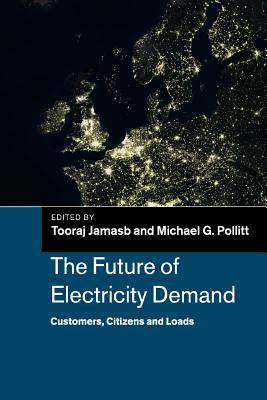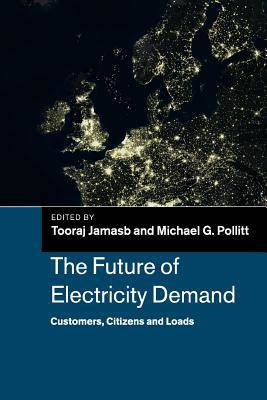
- Afhalen na 1 uur in een winkel met voorraad
- Gratis thuislevering in België vanaf € 30
- Ruim aanbod met 7 miljoen producten
- Afhalen na 1 uur in een winkel met voorraad
- Gratis thuislevering in België vanaf € 30
- Ruim aanbod met 7 miljoen producten
Zoeken
The Future of Electricity Demand
Customers, Citizens and Loads
€ 74,95
+ 149 punten
Omschrijving
What will electricity and heat demand look like in a low-carbon world? Ambitious environmental targets will modify the shape of the electricity sector in the twenty-first century. 'Smart' technologies and demand-side management will be some of the key features of the future of electricity systems in a low-carbon world. Meanwhile, the social and behavioural dimensions will complement and interact with new technologies and policies. Electricity demand in the future will increasingly be tied up with the demand for heat and for transport. The Future of Electricity Demand looks into the features of the future electricity demand in light of the challenges posed by climate change. Written by a team of leading academics and industry experts, the book investigates the economics, technology, social aspects, and policies and regulations which are likely to characterize energy demand in a low-carbon world. It provides a comprehensive and analytical perspective on the future of electricity demand.
Specificaties
Betrokkenen
- Uitgeverij:
Inhoud
- Aantal bladzijden:
- 508
- Taal:
- Engels
- Reeks:
Eigenschappen
- Productcode (EAN):
- 9781107532731
- Verschijningsdatum:
- 2/07/2015
- Uitvoering:
- Paperback
- Formaat:
- Trade paperback (VS)
- Afmetingen:
- 152 mm x 229 mm
- Gewicht:
- 671 g

Alleen bij Standaard Boekhandel
+ 149 punten op je klantenkaart van Standaard Boekhandel
Beoordelingen
We publiceren alleen reviews die voldoen aan de voorwaarden voor reviews. Bekijk onze voorwaarden voor reviews.










